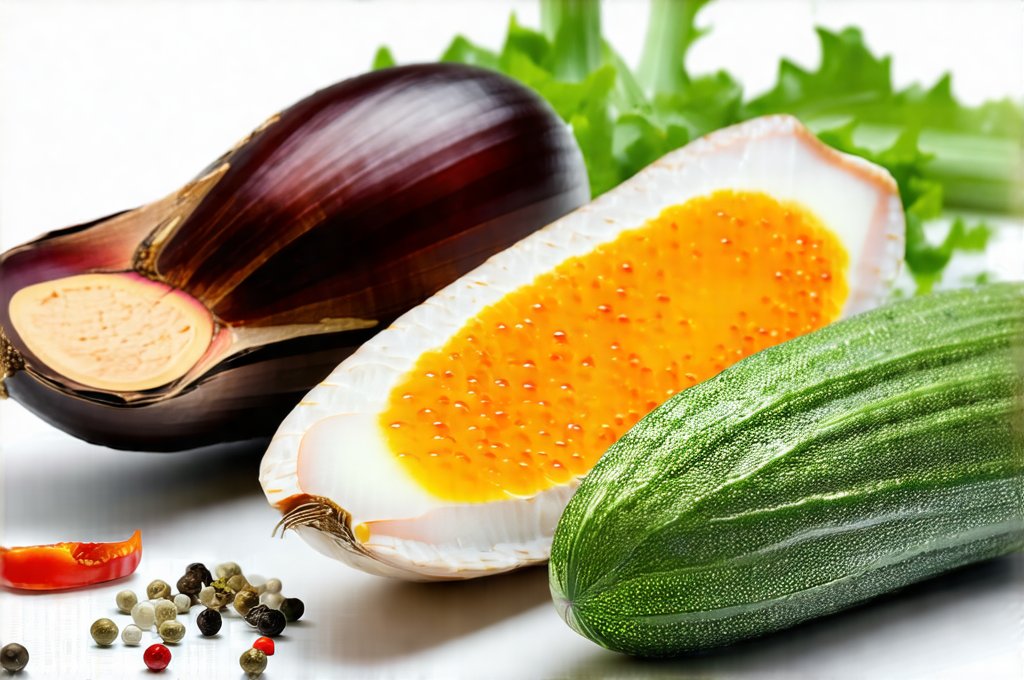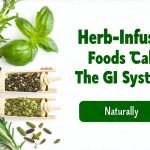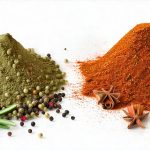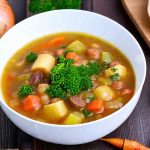Gas, bloating, and digestive discomfort are common experiences for many people, often triggered by specific foods or combinations thereof. While dietary sensitivities vary greatly from individual to individual, understanding how certain ingredients interact within a meal can be a powerful tool in minimizing these unpleasant side effects. It’s not always about eliminating entire food groups; instead, strategically pairing ingredients known to either counteract gas-producing properties or aid digestion can make a significant difference in comfort and well-being. Many traditional culinary practices intuitively utilize these pairings – think of the addition of fennel seeds after a heavy meal or ginger alongside fish – demonstrating an understanding honed over generations. This article explores how to intelligently combine everyday cooking ingredients to promote easier digestion and reduce gas, focusing on practical applications you can incorporate into your daily meals.
The goal isn’t necessarily to eliminate all gas (a natural part of the digestive process!), but rather to manage excessive or uncomfortable bloating. Many factors contribute to gas production beyond just food choices – eating too quickly, stress levels, and even hydration play a role. However, focusing on ingredient pairings offers a proactive approach to minimizing discomfort, allowing you to enjoy your meals without anticipating unwanted consequences. We’ll move beyond simply identifying “gassy” foods and delve into how to build balanced dishes that support healthy digestion and minimize digestive distress through thoughtful culinary choices. Understanding the benefits of mindful cooking is the first step.
The Power of Carminatives & Digestive Aids
Carminative herbs and spices are nature’s little helpers when it comes to easing digestion and reducing gas. They work by either directly relaxing the muscles in the digestive tract, allowing gas to pass more easily, or by helping to break down food more efficiently. Integrating these into your cooking isn’t about overpowering a dish with flavor; often, small amounts are incredibly effective. Common examples include ginger, fennel, chamomile, peppermint, and caraway seeds. These aren’t just flavorful additions – they actively support the digestive process.
Beyond herbs and spices, certain foods naturally promote digestion due to their enzyme content or fiber composition. Pineapple, for instance, contains bromelain, an enzyme that aids in protein breakdown. Papaya boasts papain, another proteolytic enzyme with similar benefits. Fermented foods like yogurt (with live cultures) and kimchi introduce beneficial bacteria that contribute to a healthy gut microbiome, improving overall digestion. This isn’t about seeking out exotic ingredients; many readily available foods offer these digestive advantages.
Pairing carminatives or digestive aids directly with gas-producing foods is a particularly effective strategy. For example, adding grated ginger to broccoli dishes (broccoli being notorious for causing bloating) can significantly mitigate discomfort. Similarly, sprinkling fennel seeds on top of beans before serving helps break down the complex carbohydrates responsible for flatulence. Think of these pairings as complementary – one ingredient addresses potential issues while the other provides nutritional value. You might also consider best cooking methods to reduce discomfort.
Ginger & Cruciferous Vegetables
Cruciferous vegetables – broccoli, cauliflower, cabbage, Brussels sprouts – are incredibly nutritious but often lead to gas due to their raffinose content, a type of complex carbohydrate that’s difficult for many people to digest. This isn’t a reason to avoid them! Instead, it highlights the benefit of strategic pairing. Ginger contains zingibain, an enzyme that aids in protein digestion and also helps break down carbohydrates.
- The combination is particularly effective because ginger also possesses anti-inflammatory properties, which can soothe the digestive tract.
- To maximize benefits: grate fresh ginger directly into dishes containing cruciferous vegetables during cooking or add a small amount of minced ginger to steamed broccoli before serving. Even a teaspoon of grated ginger can make a noticeable difference.
- Consider marinating cauliflower in a mixture containing ginger and lemon juice before roasting – the acidity further aids digestion, while the ginger provides its digestive benefits. Thinking about cooking oils can also help.
Fennel Seeds & Legumes
Legumes (beans, lentils, chickpeas) are nutritional powerhouses but are well-known for causing flatulence. This is due to oligosaccharides, complex sugars that human digestive systems struggle with. Fennel seeds contain anethole, a compound known to relax the intestinal muscles and aid in gas expulsion. They also possess anti-inflammatory properties.
- Incorporating fennel seeds into legume dishes can dramatically reduce discomfort.
- Methods for adding fennel seeds:
- Add one teaspoon of crushed fennel seeds to the cooking water when boiling beans.
- Sprinkle a half-teaspoon of crushed fennel seeds over cooked lentils before serving.
- Include whole or ground fennel seeds in bean soups and stews during simmering.
- The aromatic compounds in fennel also contribute a pleasant flavor that complements many legume dishes, making it an easy addition to your cooking routine. You can explore sensitive digestion options as well.
Chamomile & Fatty Foods
Fatty foods often slow down digestion, leading to bloating and discomfort as food sits in the stomach for longer periods. Chamomile tea, or chamomile incorporated into meals (though less common), has traditionally been used to soothe digestive upset and reduce inflammation. It contains compounds that help relax the muscles of the intestinal tract, promoting more efficient digestion.
- While drinking a cup of chamomile tea after a meal can be helpful, incorporating chamomile into the cooking process itself offers an even more proactive approach.
- Ideas for culinary use:
- Infuse olive oil with dried chamomile flowers to create a flavorful and digestive-friendly cooking oil. Use this oil sparingly when sautéing vegetables or preparing lean proteins.
- Add a pinch of dried chamomile to sauces or soups, being mindful that the flavor is delicate and can be easily overpowered.
- Pairing chamomile’s calming properties with fatty foods helps counteract the potential for digestive sluggishness. Understanding pancreas-safe cooking methods can also aid digestion.
Balancing Fiber & Hydration
Fiber is essential for overall health, but too much fiber without adequate hydration can exacerbate gas and bloating. This is because fiber absorbs water in the gut, and if there isn’t enough water present, it can lead to constipation and increased fermentation – resulting in gas production. The key is finding a balance between fiber-rich foods and sufficient fluid intake.
It’s not about avoiding fiber; rather, it’s about how you consume it. Gradually increasing fiber intake allows your gut microbiome time to adapt. Sudden increases can overwhelm the system, leading to discomfort. Equally important is pairing high-fiber foods with adequate water – aiming for at least eight glasses of water per day is a good starting point.
Furthermore, different types of fiber affect digestion differently. Soluble fiber (found in oats, apples, and beans) draws water into the gut, softening stool and aiding regularity. Insoluble fiber (found in whole grains and vegetables) adds bulk to the stool, promoting faster transit time. A combination of both is ideal for optimal digestive health. Prioritizing foods that offer a balance—like quinoa over purely refined carbohydrates—supports a healthier digestive process from the start. You may also want to consider cooking methods for better digestion.
The information provided in this article is intended for general knowledge and informational purposes only, and does not constitute medical advice. It is essential to consult with a qualified healthcare professional for any health concerns or before making any decisions related to your health or treatment.


















